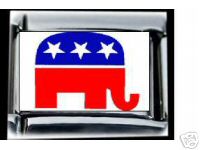Broadening the Tax Base
I think we all agree that the current tax system is burdensome. No one l know likes having to take the time to fill out their tax forms every year. Gathering the forms, waiting until your employer gives you your tax information, then trying to figure out what your tax liability is, what you’ve already paid in, filling in the forms, writing a check if necessary and finally actually filing. Do I mail it or send it electronically? Did I claim all the deductions I’m entitled to? Did I do something that will trigger (gasp!!) an audit?
I think we can all mostly agree that we hate paying taxes. Do you realize that paying an income tax is a relatively new concept? The 16th Amendment, Income Tax, was passed in 1913. That’s less than 100 years ago. We’re not talking about something that’s been around since the dawn of time. Taxpayers figured out how much they owed and wrote a check payable to the US Treasury. It wasn’t until WWII that the government started automatic withdrawals from our paychecks (the deduction on your pay stub called Federal Withholding). Again, a relatively new concept. It was to make it easier for taxpayers during the time of war. And then, it was only supposed to be until the end of the war. Uh huh. Congress got hold of this cash cow and wouldn’t let go.
In the 1930’s FDR started the Social Security program. It was designed to help the elderly and poor during the Depression. A noble concept that my liberal side agrees with. It was funded by money taken from the tax payer, the deduction on your pay stub called FICA-Regular, and put into a “Trust Fund” where funds were disbursed from to give to those eligible.
During the 1960’s, more social programs were enacted: Medicare being one. Again, a noble concept. But, in order to fund these programs, money had to come from somewhere. Congress decided that our payroll taxes could pay for it. And this is funded by the deduction on your pay stub called FICA-Medicare.The problem comes in when there are fewer taxpayers for each social welfare program recipient. That’s the problem we’re facing today. The Baby Boomer generation (1946-1964) is beginning to retire. And yes, I have a vested interest in this problem. I’m a Boomer, born right smack in the middle.
So, what do social welfare programs have to do with the Fair Tax Act? I’m so glad you asked! When the FTA is passed (I’m an optimist, I believe it will be passed when people understand what it can do for them), it will immediately broaden the tax base to include large groups of people who do not currently pay income taxes. By including these groups, the tax base will be broadened and all social programs can continue.
What? They don’t pay taxes? I have to pay taxes! Why don’t they? Well, let’s examine these groups and find out why they don’t pay taxes. What groups are we talking about? Well, come back for Part II and find out.
I think we can all mostly agree that we hate paying taxes. Do you realize that paying an income tax is a relatively new concept? The 16th Amendment, Income Tax, was passed in 1913. That’s less than 100 years ago. We’re not talking about something that’s been around since the dawn of time. Taxpayers figured out how much they owed and wrote a check payable to the US Treasury. It wasn’t until WWII that the government started automatic withdrawals from our paychecks (the deduction on your pay stub called Federal Withholding). Again, a relatively new concept. It was to make it easier for taxpayers during the time of war. And then, it was only supposed to be until the end of the war. Uh huh. Congress got hold of this cash cow and wouldn’t let go.
In the 1930’s FDR started the Social Security program. It was designed to help the elderly and poor during the Depression. A noble concept that my liberal side agrees with. It was funded by money taken from the tax payer, the deduction on your pay stub called FICA-Regular, and put into a “Trust Fund” where funds were disbursed from to give to those eligible.
During the 1960’s, more social programs were enacted: Medicare being one. Again, a noble concept. But, in order to fund these programs, money had to come from somewhere. Congress decided that our payroll taxes could pay for it. And this is funded by the deduction on your pay stub called FICA-Medicare.The problem comes in when there are fewer taxpayers for each social welfare program recipient. That’s the problem we’re facing today. The Baby Boomer generation (1946-1964) is beginning to retire. And yes, I have a vested interest in this problem. I’m a Boomer, born right smack in the middle.
So, what do social welfare programs have to do with the Fair Tax Act? I’m so glad you asked! When the FTA is passed (I’m an optimist, I believe it will be passed when people understand what it can do for them), it will immediately broaden the tax base to include large groups of people who do not currently pay income taxes. By including these groups, the tax base will be broadened and all social programs can continue.
What? They don’t pay taxes? I have to pay taxes! Why don’t they? Well, let’s examine these groups and find out why they don’t pay taxes. What groups are we talking about? Well, come back for Part II and find out.




0 Comments:
Post a Comment
<< Home